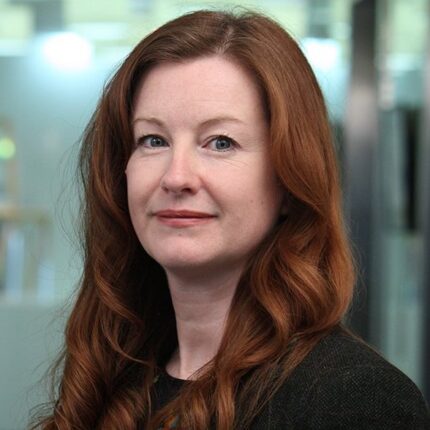Along the hallowed halls of our universities, there’s a (relatively) new buzz-phrase; people are increasingly talking about becoming “civic institutions”. But what does this mean?
To my mind, it’s a reframing towards a more place-based, people-centred, inclusive – even community-oriented – outlook, and a welcome one. But if our academic institutions are to truly walk this walk, as well as talk this talk, change must be deep and wide-reaching.
Crucially, for our research-intensive universities in particular, a grassroots-up approach to evidence-gathering will be key to understanding place, role, and purpose, to welcoming broader audiences, and to really understand a variety of viewpoints.
Empowering methods
Over the past two to three years, we’ve seen a surge in interest in peer and participatory methods from across the board.
Peer research is empowering. It is directed and conducted by people with lived experience of the issues being studied – and, often, with a deep and personal understanding of the social or geographical community. This means people can affect positive change that matters to them.
Where I work, at the community research and social innovation not-for-profit, The Young Foundation, we have sought to capture the “state” of peer research and its policy impacts during this period of surging interest.
We’ve been driven by the desire to create a much clearer picture of the quality, efficacy, impact, and innovation happening through peer research in the UK today.
Addressing polarisation and distrust
Now is the time. If we look back over the past 20 years, we human beings have systematically been building technological infrastructures to communicate, share information, organise, and act in different ways. We have also managed to build a world of communication and knowledge-creation that polarises, creates distrust, and puts people and power at an increasing distance.
Our world has become exponentially more complex, and the current focus on “place” (locality) is becoming a lens through which to explore systemic challenges. The rise of the civic university is an important manifestation of this – but just one.
Wander through the corridors of any combined or local authority, NHS trust, or other major civic institution and you’ll hear people talking about system change, system leadership, and the role of anchor institutions in creating social value in a place.
The “community” can feature heavily in these conversations, with variations on a theme of community power, understanding community priorities, involvement in knowledge-creation, prioritising need, involvement in decision-making, in being community-centred.
One central principle and consideration for the effective implementation of “system change” – whether that is in education, health, housing, public services, or reorientation towards being a civic university, is the forging and weaving of new relationships. Crucially, relationships between different realms – whether they’re “vertical” ones between the national and the hyper-local, or “horizontal” one between sectors, industries, disciplines and communities. And we are still in the foothills of learning about the tools, capabilities, methods, and approaches that support new, sustained, more equitable relationships between system actors.
Our tools evolve to service the jobs we need to perform. And amongst that suite of new tools and approaches – particularly in relation to relationships between communities and the institutions that influence their wellbeing, which has particular resonance for universities – is peer research.
I am not suggesting that peer research is held up as the panacea to all our ills. But there are things about peer and participatory research that actively work to counter some of the prevailing winds of distrust and distance between people and power. That could open universities up to new ideas, as well as broader audiences with more diverse experiences. Things that stimulate curiosity, inclusivity, and collective social action.
Curiosity capacity
Part of this is about increasing “curiosity capacity”: the more people ask questions (of themselves, and others) about the world they are inhabiting – in ways that are designed to increase knowledge and understanding – the more we can all counter bias, distrust, and polarisation; build new relationships; and increase our collective capability to create positive change.
Let’s take it as read that higher education and academic research are about being curious and opening up to new ideas, new understanding, new connections, and relationships.
We know that whatever your class or level of education, if you are curious, you are less likely to hold partisan views. You are more likely to have your mind changed because you are looking to learn. And I am sometimes surprised how entrenched the views of people who work in centres of learning can be.
Being curious isn’t an innate talent; the capacity to be curious can be grown. And it can be grown, particularly, through peer research.
When it comes to social research and the innovation ecosystem to create social and systemic change, it is quite a homogenous tribe.
If we really believe in the value of equity, diversity, and inclusion, we need more pathways into the research and innovation system, ones that accept or love non-traditional life journeys.
Peer research – as is evidenced on a small scale through the Kickstart Programme – can be a route into academic research for a more diverse group of people. And understanding the experiences of a more diverse student body, when they get there, can also benefit from a peer research approach, as is evidenced through The Young Foundation’s partnership with GuildHE.
Uncertain times
Over the past few years, we have borne witness to a global pandemic, a new war in Europe, a changing climate, and all the acute and chronic problems that these things are causing across the world. We can’t sugar-coat any of this; we need to take an unflinching gaze as the world unfolds.
But UK universities were built on the belief that, through knowledge, exploration, innovation, and understanding, we can shape our future – and that capacity to shape a fairer future can’t and should not be the sole preserve of those who hold power.
Increasingly, we are seeing an interest in peer research that directly seeks to bridge our internationally renowned, historic universities with the people living in today’s communities, and support collective social action in response to the issues and insights uncovered by peer researchers.













